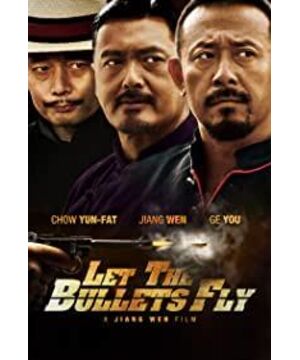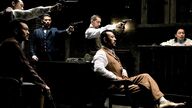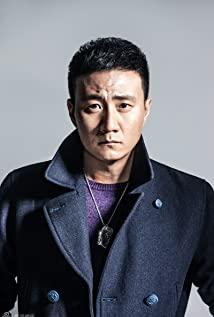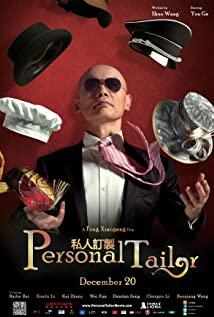Dai Jinhua doesn’t seem to be afraid of this at all. She has never cared about what the director thinks. It is probably Foucault’s famous saying that has been said to have spoken out of her aspirations. It's the age of telling myths", Dai depends on the director's ideology and the torrent of the times. And it seems that this method does not use Jiang Wen, because Jiang Wen seems to have two roles, revolutionary and director.
It is difficult for revolutionaries to interpret because revolutionaries are often theorists. Revolutions are not about killing people and arson, or grabbing money to become emperors. Therefore, revolutionaries have more things to think than rebellion. Of course, Jiang can still be interpreted by Dai, because everyone can’t escape his own ideology and the limitations of the times, but what is interesting about Jiang is that he has a strong subjectivity and he wants to interpret the times, so he Many times the films made are not only the components in the structure, although he also likes the box office very much, many times, it also serves as a sketch and mirror of the structure, photographing it, revealing it, criticizing it, and finally reforming it. It's fate.
Of course, the scholars rebelled and failed in three years, and the revolution of the literati did not meet the times. In many cases, they could only be obscene, and there was nothing to say. Tell me about the movie. Some things are too clear in it, but there is no suspicion of over-interpretation at all.
The first point is certain that letting bullets fly is definitely guided by Mao Zedong Thought, ha ha. The romantic bandit leader Zhang Muzhi confronted the capitalist chaebol and comprador. In short, it was Huang Shilang who was a big collection of backward power. The problem was that the bandits didn’t grab the money from the poor. Instead of grabbing money, they also sent money. Not only did they send money, they didn’t care about the money. He only wanted to eliminate Huang Silang. The original motivation was the death of the six sons. In the end, the revolutionary team actually did not want to avenge the six sons, but Zhang Mazi insisted on killing the goose city. This has become a revolutionary story. And it is a Maoist revolutionary story that mobilizes the masses and power comes from the barrel of the gun. In terms of revolutionary tactics, it is absolutely Maoist, and the recognition of the masses: they are angry, so they are revolutionary, they are waiting and watching, whoever helps others, has small peasant awareness, and is conservative. So the revolutionary strategy is very important. If you want to find a way to get their anger out, is this set of methods used less in land reform? Of course, as far as the revolution is concerned, the strategy is to deceive people. From the perspective of Mao’s revolutionary theory, to deceive the masses, to mobilize them, and to make the revolution a success is not concealing its flaws.
Turning back to Six Sons, others said that he had eaten two bowls of noodles and he was about to have a caesarean section. This was obviously a leftist naïve disease and failed to recognize the nature of the enemy and the masses. Others said he couldn’t stand it any more and cares too much about his name. On this festival, the bookish spirit is too heavy. People who do revolution don't care about what the masses think. First of all, how can they be swayed by the enemy. The bookish spirit is too heavy. Isn't this Chen Duxiu and Qu Qiubai? This practice caused great damage to the vitality of the revolutionary team. Of course, the crisis was also a turning point. This made the direction of the revolution clearer and the revolutionary team was more united. In addition, the leftists and rightists in the revolutionary ranks are very obvious. Except for Shiye’s tendency to be speculative, the second, third, fourth, fifth and seventh are all daredevils, pure leftists, just like Wang Mingbogu. Fighting against the powerful Huang Shilang, he didn't understand strategy and how to make a revolution. Fortunately, none of them wanted to take advantage of Zhang Mazi's power, otherwise this matter would be even more troublesome.
How the revolution triumphed is also very simple. It is a legend similar to the Four Crossings of Chishui. In short, the small wins the more, the weak wins the strong, and of course the masses are mobilized. But in fact, it is the three things: Party building (rectification, against the master, against the collective goal), armed struggle (policy out of the barrel of the gun), and the united front (getting Zhou Yun over). Of course, in addition to these three magic weapons, the other three theories are connected with practice and close contact with the masses. Criticism and self-criticism are not obvious. However, if they are manifested clearly, it is estimated that the box office will not be good.
En talk about the train and Zhang Mazi's response, which I think is the strongest political metaphor in the whole film. At the beginning of the film, the first train headed to Cannes (note, not Goose City). Zhang Mazi flew a bullet and overturned the train. What was that? That was the Nanchang Uprising, which fired the first shot of armed resistance against the Kuomintang reactionaries. At the end of the film, there is another train heading to Pudong. Zhang Mazi backs down and follows, without flying bullets. What is that? That is reform and opening up, the train to the capitalist world.
Speaking of Goose City, isn't that actually China? (Chicken-shaped layout). Speaking of Cannes, isn't that actually modern China? (A well-off society). At the end of the film, the revolutionaries said "Shanghai is Pudong, and Pudong is Shanghai", which made me unconsciously think of Haiqing in "Snail House" and said to the seaweed who just came to Shanghai but was homesick: Look, there are bright pearls in big cities, at home. Have it? There is Isetan in the big city, do you have it at home? Under cross-examination, Hai Qing concluded that there is nothing at home, but big cities have everything. Big cities become everything, just as the revolutionaries said, "Shanghai is Pudong" (of course, at that time, Pudong should not be developed, this is Jiang Wen's magic technique).
Shanghai is Pudong, and Pudong is Shanghai. The prosperous capitalism represents everything in Shanghai and also obscures other possibilities in Shanghai. Speaking of "possibility", the Goose City Revolution is actually an attempt of possibility. This possibility starts when the first train is overturned, and in front of the second train, all possibilities are cut off, Zhang Mazi. Also followed lonely. Speaking of the end of the two trains, the first is Cannes, and the second is Pudong, which represents everything in Shanghai. Looking back, isn't Cannes just Pudong? After the Goose City Revolution, the train did not actually change its direction. The difference was that on the first train were capitalists and local tyrants and evil gentry, while on the second train were former revolutionaries, singing the same "" "Farewell" song, what are they saying goodbye? I really didn't understand how the people in the bureau didn't understand the irony of real politics so clearly. Turning back to the possibility, in fact, there has never been a possibility. The Goose City Revolution in the middle has become a romantic heroic bubble. Of course, the revolution is still fruitful, defeating Huang Shilang and entering anarchy. Maybe it is a bubble, but I am a substitution of myself, I think, the last revolutionary Zhang Mazi, there is nothing, money, no, brothers, scattered, women, robbed of brothers, chairs, removed by the masses Of course, Zhang Mazi is a hero, and he doesn’t care about these, but when the second car screams out, he timidly avoids and follows timidly. When it comes to following, it’s actually better to say "involvement." , Isn’t that the image of laid-off workers who are alive and well?
Speaking of letting the bullet fly, in the end, Zhang Mazi gave the gun to Zhou Yun, who had no hesitation to run towards the capitalist world. This time the bullet could no longer fly, or even if it flew, its direction would have to be reversed. Up.
Going back to the end, I have no intention to promote Jiang Wen as a god, nor is it one of his lackeys. These days, everyone has such a strong subjectivity. Whoever wants to be other lackeys, it’s just obvious that Jiang Wen’s movie is for the society. A tribute to and regret for the ideal of the revolutionary revolution, it is also a struggle and fight in the capitalist world. The former is "stand" and the latter is "make money." So Jiang Wencai said, "I can make money even standing. Up". But this is untenable in his narrative logic. Without a gun, he is standing on his knees.
View more about Let the Bullets Fly reviews











